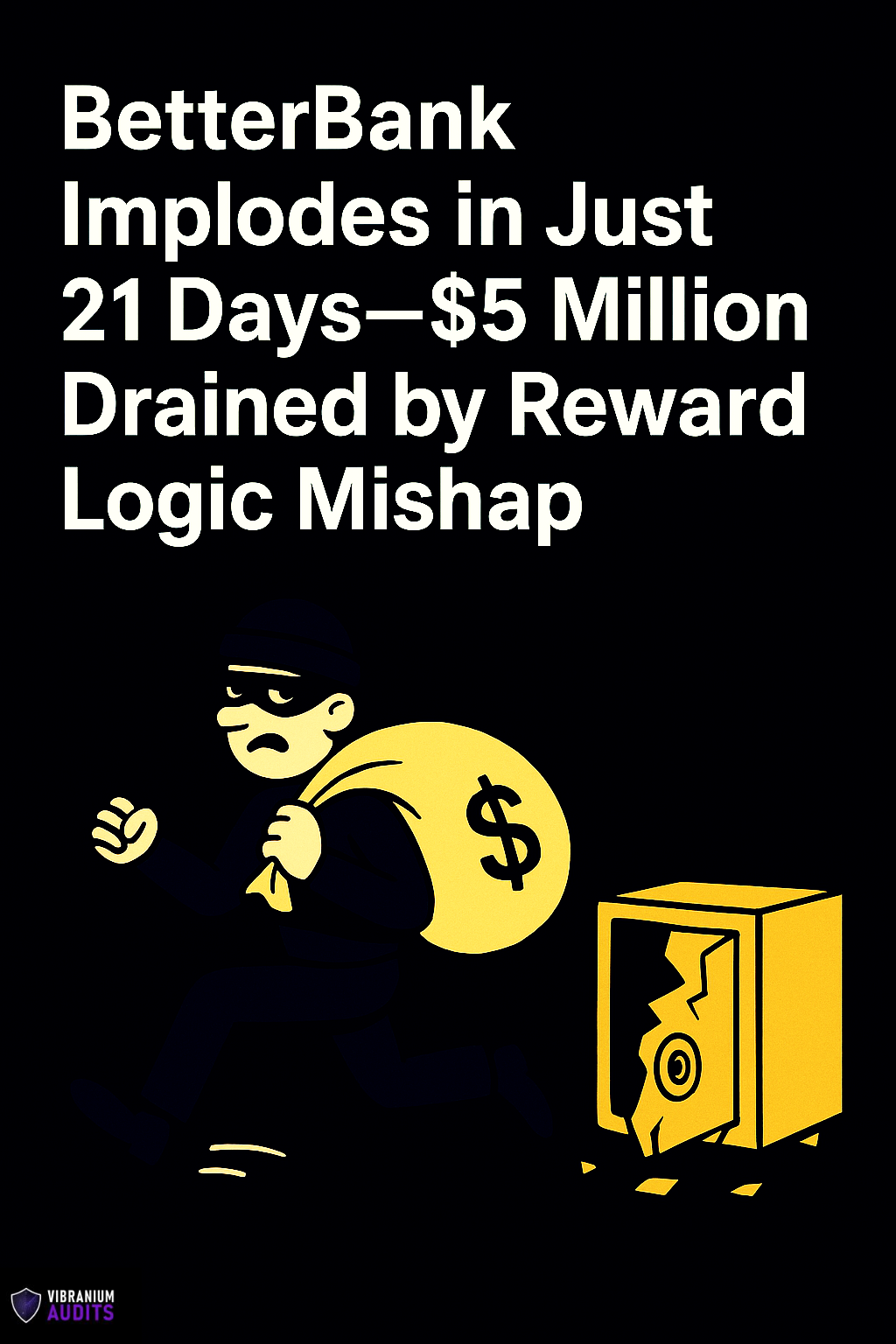In a startling collapse that shocked the DeFi realm, BetterBank, a freshly launched protocol, imploded within just three weeks of its debut—resulting in $5 million in drained funds. The culprit was neither a flash loan trick nor a governance coup, but a simple, catastrophic flaw in its reward logic.
Designed to incentivize early participation, the reward mechanism instead became a runaway cash printer. One by one, users watched in disbelief as their funds evaporated—not due to malicious actors targeting contract vulnerabilities, but because the protocol itself had turned against them.
What makes this particularly striking is the timeframe. Just 21 days from the launch and the code had already betrayed its users. The exploit wasn’t a bug; it was an economic design failure. DeFi’s most dangerous flaws often emerge not in obscure vulnerabilities, but in incentive structures gone awry.
BetterBank’s team rushed to freeze operations and issue mea culpas, but those gestures offered scant comfort to users who lost everything. When math meets economics without ironclad checks, even the most optimistic launch can collapse into chaos.
Meanwhile, Coinbase found itself in a different kind of security quagmire. Despite its public promises of institutional-grade safety, the exchange suffered a newsmaking $550,000 loss due to an approval mistake involving the Settler contract. A single careless approve action turned into one more data point in a long, ugly list of Coinbase’s phishing and scam-related losses—all while the company perfects its compliance theater. Lawmakers and retail users alike are left wondering if these incidents are growing policy failures concealed behind corporate spin.
In a separate yet equally alarming development, GMX experienced a $42 million exploit in its V1 protocol. The culprit? A cross-contract reentrancy flaw inadvertently introduced via a botched bug fix. Two years of operation and blue-chip audits couldn’t prevent this fundamental coding mistake from bringing the platform to its knees.
What ties all these stories together: A Reminder
DeFi isn’t just falling victim to outside threats—it’s often undermined from within. Whether it’s poorly engineered economic incentives, human error in approval workflows, or classic contract vulnerabilities, the damage comes from predictable sources.










